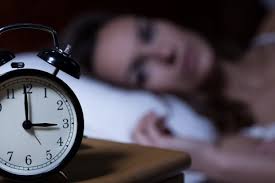
Breaking News
 Iran partially closes Strait of Hormuz, a vital oil choke point, as Tehran holds talks with U.S.
Iran partially closes Strait of Hormuz, a vital oil choke point, as Tehran holds talks with U.S.
 Lindsey Graham: 'US Soldiers Could Be Hit In War With Iran...But It's Worth It.'
Lindsey Graham: 'US Soldiers Could Be Hit In War With Iran...But It's Worth It.'
 It Begins: Mamdani Plans First NYC Property Tax Hike In Decades To Plug $5 Billion Hole
It Begins: Mamdani Plans First NYC Property Tax Hike In Decades To Plug $5 Billion Hole
 SpaceX Enters Secretive Pentagon Contest To Build Voice-Controlled Drone Swarm Tech: Report
SpaceX Enters Secretive Pentagon Contest To Build Voice-Controlled Drone Swarm Tech: Report
Top Tech News
 New Spray-on Powder Instantly Seals Life-Threatening Wounds in Battle or During Disasters
New Spray-on Powder Instantly Seals Life-Threatening Wounds in Battle or During Disasters
 AI-enhanced stethoscope excels at listening to our hearts
AI-enhanced stethoscope excels at listening to our hearts
 Flame-treated sunscreen keeps the zinc but cuts the smeary white look
Flame-treated sunscreen keeps the zinc but cuts the smeary white look
 Display hub adds three more screens powered through single USB port
Display hub adds three more screens powered through single USB port
 We Finally Know How Fast The Tesla Semi Will Charge: Very, Very Fast
We Finally Know How Fast The Tesla Semi Will Charge: Very, Very Fast
 Drone-launching underwater drone hitches a ride on ship and sub hulls
Drone-launching underwater drone hitches a ride on ship and sub hulls
 Humanoid Robots Get "Brains" As Dual-Use Fears Mount
Humanoid Robots Get "Brains" As Dual-Use Fears Mount
 SpaceX Authorized to Increase High Speed Internet Download Speeds 5X Through 2026
SpaceX Authorized to Increase High Speed Internet Download Speeds 5X Through 2026
 Space AI is the Key to the Technological Singularity
Space AI is the Key to the Technological Singularity
 Velocitor X-1 eVTOL could be beating the traffic in just a year
Velocitor X-1 eVTOL could be beating the traffic in just a year
Can't sleep? Insomniacs should try camping, say scientists

Over the years, insomniacs have been offered pills, plants, "mindfulness", and even special lamps to help them get off to sleep.
But it now turns out that a far simpler solution has always been at hand, and one that is, literally, all around: the great outdoors.
New research suggests that rather than lying in bed miserably counting imaginary sheep, insomniacs should get out among some real ones and try a spot of camping.
According to a new study, just a couple of nights under canvas is enough to reset the body's internal clock, enabling people to fall asleep more quickly.
Modern living is increasingly depriving people of sufficient natural light, causing the timing of their circadian rhythm to slip.
However, a new experiment by the University of Colorado revealed how a stint in the countryside is able to rapidly shift the timing forward by two and a half hours, allowing campers to go to bed at a civilised hour once they returned home.
The altered rhythms were detected by measuring levels of the hormone melatonin in the participants.
Going to bed late is thought to contribute not only to sleepiness and reduced productivity during the day, but also more serious conditions like mood disorders, diabetes and obesity.
"If a person wants to go to bed at an earlier hour, then a weekend camping could be just the thing," said Dr Kenneth Wright, who led the research.



